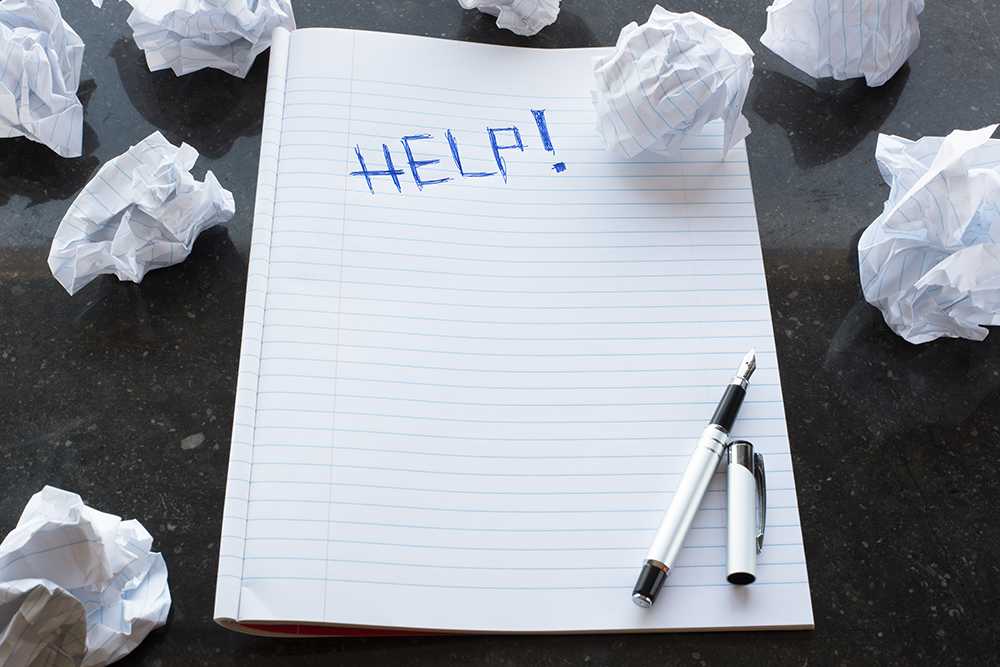Published on:
Since you’ve ended up here, it should be safe to assume that your brain is refusing to supply you with words. You can’t figure out what to write about, how you can write about it, or both. What does it mean for you when even coffee stops helping?!
Bad news: a writer’s block has descended upon you.
Good news: you’re not alone, and it’ll pass.
Before your wandering attention takes you away, let’s establish that we can definitely help you deal with this.
Let’s begin with what writer’s block is and why it happens.

Contents
What (and why) is writer’s block?
Writer’s block is an overwhelming feeling of creative blankness where' a writer can’t bring themselves to write anything at all.
Researchers have found various reasons for it, and they all mostly boil down to three things:
- Anxiety: Writers become anxious about their skill and creativity. They fear that their writing isn’t good enough and lose confidence in their abilities.
- Insecurity: They feel unappreciated by the readers or critics and constantly compare themselves with other writers.
- Fatigue: Writers are genuinely tired and need a break from the stress of writing.
How to defeat writer’s block
Writers all over the world have struggled with a block, and some widely accepted solutions have emerged out of their common struggles. Out of that, we’ve compiled a list of some foolproof and some less-than-orthodox ideas for those who dare to try!
If you follow these methods, you should not only be able to overcome but also completely avoid writer’s block altogether!

1. Go offline
Welcome the Amish life! Put away all those gadgets and turn off the WiFi. Now try and complete your regular activities without the aid of technology—it’s bound to result in at least one quirky and unusual situation. That should get you stimulated enough to write about it, so go ahead and view the world without digital filters!
Yes, it sounds preposterous, but it works. Social media is built to be addictive, so it conditions your brain to get stuck in a fixed cycle. The same is true for all other technology: when you break the patterns you’re used to, interesting answers emerge. In most cases, this is enough to get the creative juices flowing again!
2. Set time limits and follow them
It’s hard, it’s boring, and it’s annoying. There, we said it. But that being said—it’s also one of the most effective ways of developing a habit to write. The fact remains that writing comes only from writing.
The process is fairly straightforward: set aside 30 minutes every day for writing. By itself, this sounds simple, but there are two important conditions:
- You can write about anything.
- If you’re unable to write, don’t force yourself. But you’re not allowed to do any other activity during this period.
Some writers take the freewrite method with this, choosing to write down anything that crosses their mind during these 30 minutes. Removing the constraints of subject and format makes it easy to develop a writing habit.
It’s tempting to think of writing as a creative process that happens only when inspiration strikes, but this is untrue. Writing, like any other art, comes out of constant practice, which involves habitual efforts.
So, you can use this method to not only overcome writer’s block, but also to avoid it altogether.

3. Stem the flow
You know that moment when the words flow effortlessly and your hands can’t move fast enough to get all of them on the page? Yes, every writer loves it. But we’re here to tell you not to cash it all.
Not right away, at least. Don’t write the entirety of it. Whatever has got you excited to write, put down, say, 75% of it. Make an abstract little note to yourself and leave the rest for the next day.
As it happens, this will get you excited to write when you return to the draft. This way, you can maintain the same flow day after day. This method is a bit unorthodox, and it works better if you write habitually.
4. Never stop to edit
Can’t say this enough times. While writing, don’t stop to edit your work or even to casually read it with an objective eye. Save that for later!
Everyone knows it: first drafts are always bad. So, leave the reviewing for when you have all the words out there on the page. If you stop to edit or go back to check your work, you get distracted and break your chain of thought. Don’t do that.
Your manuscript is much better off if you simply take the time to write uninterrupted. Get the whole of it out and then begin the editing process.

5. Don’t plan your writing
…down to the last T. Now, we all know the gardener and architect methods, but sometimes obsessing over perfection can result in a writer’s block too! Loosen some of your control over the creative process and you may just find something new.
So, allow your book to take you where' it wants to go. Welcome surprises and find your way around them. Part of the creative charm lies in this, the tussle between the creator and the creation.
If you find that your writing deviates from your pre-established direction, let it do so and then review the finished work. It’s a gamble, but a creative one that doesn’t interrupt your writing process. After all, you can always scrap it if things don’t work!
6. Do something else for a while
If you’re absolutely unable to write , occupy yourself with other tasks throughout the day. Take a shower, make a meal, water your plants, you know the drill. Writing is hard work, and everyone needs some time off.
Usually, writers take breaks but spend them worrying over deadlines and critics and reviews. Doing chores during breaktime can help you avoid these anxieties and allow your mind to get some real rest.
Plus, the most mundane activities can get your thoughts rolling. Once you’re rested and relaxed, your writing worms will return from war, and you can run back to your desk!

7. Read, read, repeat
Does this even need any explanation? Reading is basically a protein for your brain.
Reading helps you study other writers’ speech patterns, flourishes, and diction. It helps you find spaces for improvement as well as newer possibilities to explore. Writing comes from writing, but that in turn is fed by reading.
Consume as many books as you can to produce one show stopping piece of writing.
8. Find different places to write
After all, your bedroom or work desk can only be so inspiring. One of the reasons for writer’s block is a lack of spontaneity. You can try taking your work outside on a coffee date or writing in the park for a couple hours.
These places help you work in an intimate little bubble while also letting you interact with your surroundings. It’s the best mix of solitary and spontaneous for inspiration to come bounding back your neural pathways!

Curing the writer’s block
Aside from these tips, there are other things you can try. You can write ahead or go backward, finish the interesting bits first or the mundane ones, or you can write in some other genre for a change.
But one thing is clear: only writing can truly cure a writer’s block. It’s like telling you that the only way to overcome a blocked nose is breathing, but it’s true! Nothing else, not even reading articles about it (we’re digging our own grave here, but okay) will solve this problem better.
So select any one of these tips, get your desk all set up, and start writing. Today or tomorrow, the muses are sure to answer your call!
Share With Your Friends